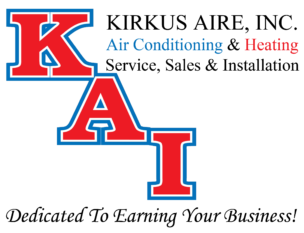We all know how essential air conditioning is, especially here in North Port, FL, where the heat can be relentless. As we rely heavily on air conditioning repair in the North Port FL area to keep cool, it’s crucial to stay informed about the changes and advancements in the HVAC industry.
What Are the Changes?
The Department of Energy (DOE) has introduced new efficiency standards known as SEER2, aiming to replace the old SEER or SEER1 standards. This shift mandates:
- Heat pumps to have a minimum of 14.3 SEER2
- Straight cool systems to achieve at least 13.8 SEER2
These changes are not just about increasing efficiency but are part of a broader initiative to reduce environmental impact and promote sustainable practices in heating and cooling technologies.
The Impact of SEER2 Standards on Consumers and the Industry
The transition to SEER2 standards represents a significant shift towards greener technology. However, this transition comes with challenges:
- Increased Cost of Equipment: The new standards will likely lead to higher upfront costs for HVAC systems due to more sophisticated technology requirements.
- Training and Expertise: There will be a greater need for skilled technicians who are trained to handle and install these advanced systems.
- Supply Chain Issues: The industry continues to face raw material shortages, labor challenges, and increased costs, further complicated by global economic pressures.
Detailed Insights from Industry Professionals
In a recent dialogue with HVAC experts, we uncovered several crucial considerations for homeowners:
- Cost-Efficiency vs. Comfort: It is often debated whether it’s cheaper to keep the AC running all day or to turn it off during periods of absence. Modern smart thermostats offer a solution by allowing preprogramming based on your schedule, which balances comfort upon arrival with energy savings.
- System Maintenance: The importance of regular maintenance cannot be overstated. Maintaining your system can extend its life significantly and prevent costly repairs or replacements. Simple steps like changing filters, cleaning ducts, and checking system integrity can save substantial amounts on energy bills.
Future Trends in HVAC
Looking ahead, the HVAC industry is bracing for more than just new efficiency standards. Anticipated changes include:
- Innovations in Cooling Technology: Advances in cooling technology are expected to continue, potentially introducing new types of cooling systems that are more environmentally friendly and more effective.
- Regulations on Refrigerants: New policies may change the types of refrigerants used, which could impact the design and functionality of future HVAC systems.
- Smart HVAC Systems: The rise of smart home technology is likely to integrate more deeply into HVAC systems, offering homeowners unprecedented control over their indoor environments.
- Variable Refrigerant Flow (VRF) Systems
One trend gaining momentum in residential HVAC is the use of Variable Refrigerant Flow (VRF) systems. These systems, commonly found in commercial buildings, are now being adapted for homes. VRF systems provide zoned climate control, which means different rooms can be heated or cooled independently—leading to greater energy efficiency and comfort. As demand for custom comfort increases, VRF could become a more mainstream option for homeowners. - Eco-Friendly Insulation and Duct Materials
In addition to new equipment, eco-friendly supporting materials are on the rise. HVAC manufacturers are beginning to offer low-emission, recyclable ductwork and environmentally safe insulation. These materials help reduce the total environmental impact of HVAC installations and may even contribute to green building certifications.
Innovations in Cooling Technology
Advances in cooling technology are expected to continue, potentially introducing new types of cooling systems that are more environmentally friendly and more effective. These advancements include the development of heat pump water heaters which leverage existing heat pump technology to heat water more efficiently than traditional water heaters. Such innovations not only reduce energy consumption but also help in cooling spaces by extracting heat from indoor air, which can be particularly beneficial in hot climates.
Regulations on Refrigerants
New policies may change the types of refrigerants used, which could impact the design and functionality of future HVAC systems. The shift towards low-global-warming-potential (GWP) refrigerants is expected to accelerate, driven by both regulatory pressures and increased environmental awareness. This transition involves phasing out older substances that are less efficient and more harmful to the environment, thereby ushering in a new era of HVAC systems designed around these more sustainable refrigerants.
All-Electric HVAC Systems
As the push for cleaner energy continues, more homeowners are turning to all-electric HVAC systems. These systems eliminate the need for gas and are compatible with other sustainable technologies like solar panels and battery backups. Not only do they reduce your carbon footprint, but they may also qualify for tax incentives under clean energy initiatives.
Smart HVAC Systems
The rise of smart home technology is likely to integrate more deeply into HVAC systems, offering homeowners unprecedented control over their indoor environments. For example, smart thermostats and HVAC systems are increasingly incorporating predictive analytics to optimize heating and cooling schedules based on usage patterns and weather forecasts, reducing unnecessary energy use while maintaining comfort.
Enhanced Air Quality Management
Building on the capabilities of smart systems, future HVAC technologies are expected to place a greater emphasis on improving indoor air quality. Innovations such as UV light integration, which has been discussed in recent industry updates, show promise in reducing airborne pathogens and allergens. These systems use UV-C light to neutralize bacteria, viruses, and mold in the air as it circulates through HVAC systems, potentially reducing the incidence of respiratory issues and enhancing overall health.
Consumer Education and Engagement
As HVAC technologies evolve, there will also be a growing need for consumer education and engagement. Homeowners must understand the benefits and operations of these new systems to maximize their potential. Companies might offer more robust educational programs and interactive tools that help consumers make informed decisions about their HVAC choices and maintenance needs, ensuring they are equipped to take full advantage of the technological advancements.
AI-Driven Predictive Maintenance
New smart HVAC systems are now incorporating artificial intelligence to predict potential system failures before they happen. These predictive maintenance tools monitor performance data in real time and can alert homeowners or technicians to issues early, often preventing costly breakdowns and reducing downtime.
Preparing for HVAC Upgrades
If your HVAC system is nearing the end of its lifespan or you need air conditioning repairs, now might be the right time to consider upgrading. The benefits of newer, more efficient models include not only better performance and lower energy costs but also a reduced environmental footprint.
Action Steps for Homeowners
- Evaluate Your Current System: Assess the age and condition of your current HVAC system. If it’s close to or beyond its typical lifespan, start planning for a replacement.
- Research Available Options: Look into the latest models that comply with new SEER2 standards. Consider features like smart technology integration, energy efficiency ratings, and compatibility with your home layout.
- Consult with Professionals: Engage with trusted HVAC professionals who can provide tailored advice based on your specific needs and the climatic conditions in North Port, FL.
- Integration with Solar Energy Systems
Today’s high-efficiency HVAC systems are increasingly being designed to integrate with solar energy setups. This means they can function more effectively with the variable power supply of solar panels and work in sync with smart home energy management systems. By pairing your HVAC upgrade with solar, you can drastically cut energy bills and reduce reliance on the grid.
The new requirements for HVAC systems have helped to make AC units more efficient but also more expensive. In addition, new training and requirements have made the cost of labor go up as well as parts and equipment harder to get. If you think you are going to need to replace your AC system soon, start saving now and reach out to your local HVAC contractor in the North Port FL area to start looking at new systems now. There may be delays, so you want to act early.
If your system is relatively new, do your best to maintain the system and keep it in working order. Contact your local HVAC contractor to establish a regular maintenance schedule and make sure you are regularly changing your filters, cleaning your ducts, and treating your condensate drain line to keep it clear.
Contact Kirkus Aire, Today!
At Kirkus Aire, customers aren’t just another number on a spreadsheet. We treat you like family. Contact us today to set up a maintenance plan or discuss installing a new HVAC system in your home.

